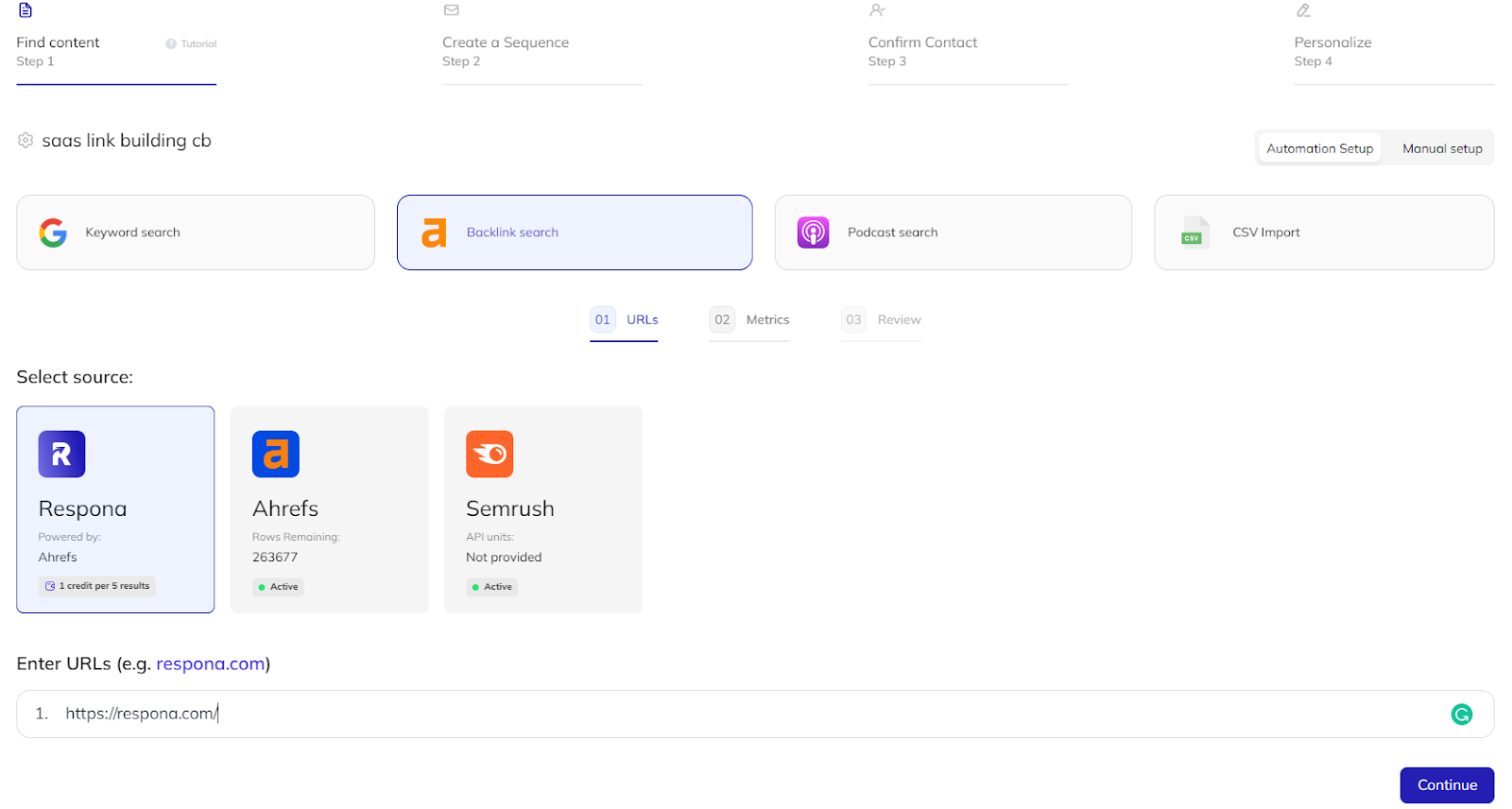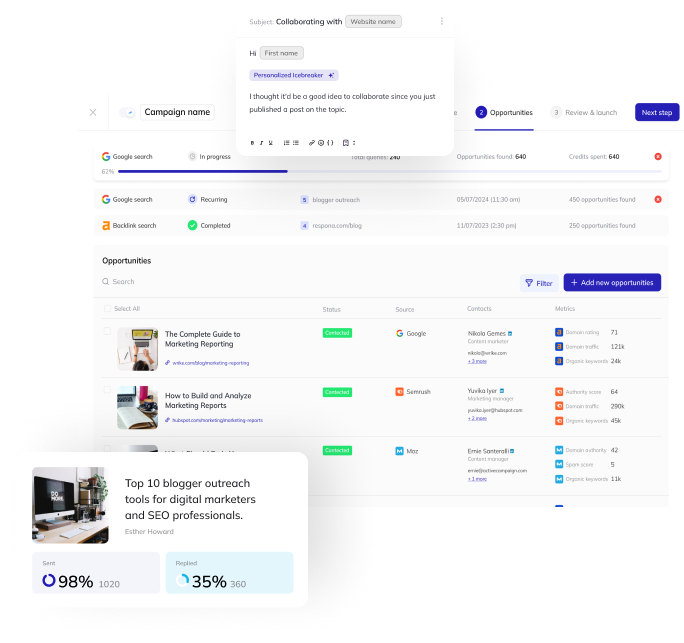Nofollow Links
What are Nofollow links?
A nofollow link is a link that does not pass on link equity or PageRank to the linked-to page. This makes them less desirable than dofollow ones as link building targets.
Nofollow links are used to reduce the effectiveness of certain types of search engine spam, like comment spam and link farms.
A nofollow link has the “rel=nofollow” attribute in its code.
However, there are also other attributes that function similarly to nofollow links (they don’t pass any PageRank), such as “rel=ugc” and “rel=sponsored”.
You can check what attributes a link has by right clicking on the page, then “Inspect”, and searching for your target URL.
If the link doesn’t have any attribute, it’s set to “dofollow” by default, which brings us to the next section.
Nofollow Links vs Dofollow Links
Dofollow links, on the other hand, do pass on PageRank – and are the desired outcome of any link builder’s outreach campaigns.
Feel free to refer to our article on dofollow links to learn more.
Are Nofollow Links Worthless?
Nofollow backlinks are not worthless.
While they may not pass along PageRank or help with SEO directly, they can still be valuable in other ways.
For example, nofollow backlinks can help to increase brand awareness or generate traffic to your website. After all, people can still click on these links and end up on your site – which might translate into a newsletter subscriber or even a customer later down the line.
Additionally, if the nofollow backlink is from a high-quality website, it can still help to build your credibility and authority.
It’s normal for a website to have a mix of nofollow and dofollow links. However, for increased SEO benefits, you should try and keep your number of dofollow link higher than nofollow ones.
How to Turn Nofollow Links into Dofollow Links
If you notice that someone has linked to you but the link has the “nofollow” attribute, you can try to leverage that to get a dofollow link instead.
In fact, you can find pages with nofollow links to your site and reach out to them pretty easily with the help of Respona.
You don’t even need an Ahrefs or SEMRush account to do it, which are otherwise must-have tools for backlink monitoring.
To do this, we will make use of the backlink search automation.
You can access it by creating a Respona campaign and going to Step 1 – Find content > Automation Setup > Backlink Automation.

Respona is directly integrated with Ahrefs, so it pulls the backlink data from there by default.
However, if you already have an Ahrefs o SEMRush account, you may also connect it to Respona to save on monthly credits (which are used for backlink searches and contact finding) and use your Ahrefs/SEMRush balance instead.
You can paste individual pages into the search bar, or run a backlink search of your whole domain.
Make sure to select “rel:nofollow” from the advanced settings menu below the search bar.

Once you click “continue”, Respona will scan your link profile and automatically pull all of your nofollow backlinks into your campaign.
From there on, you will have to go through three more steps: creating your email sequence, finding the right contact emails, and personalizing the actual pitches.
We won’t cover those steps in this article as each has a ton of different nooks and crannies, so feel free to refer to our link building outreach A-Z guide to learn more.
Nofollow Link Example
The following is an example of a nofollow link that points back to one of our own articles:

Should You Avoid Nofollow Links Altogether?
Nofollow links are not completely bad and there are certain situations where they can be beneficial.
For example, a nofollow link from a high-quality resource is better than no link at all. People can still click on it, after all – which may even result in conversions.
However, if you are trying to increase your PageRank or improve your search engine optimization, then you should avoid nofollow links altogether.
How to Use Nofollow Links in Your Content?
Outbound nofollow links are arguably more useful than inbound ones.
The following are four common reasons for nofollowing an outbound link.
1. To avoid passing pageRank to low-quality sites.
Of course, it’s better to simply not link to a low-quality site from an SEO standpoint, but if you absolutely have to (or simply like prefer their content over some other, more authoritative sources), you can make use of the nofollow attribute.
By using nofollow links, you can avoid passing pageRank to these sites.
2. To avoid being penalized by Google.
Google has been known to penalize sites with excessive outbound links.
There is no set-in-stone rule when it comes to outbound links, but having dozens of dofollow links to different (especitally lower-quality) sites definitely puts you in the “spammy” territory.
So, if you do have quite a few links on your page but still would like to keep them, it’s a good idea to add the nofollow attribute to them, just to be safe.
3. To keep your link juice.
Links pass on PageRank, which lies at the core of any website’s online visibility.
Having a lot of outbound links can have a detrimental effect on your own rankings, as you’re essentially giving all of your link juice away.
As our Co-Founder, Farzad likes to say, your website is like a bucket.
Every incoming link is a drop of juice in that bucket, while every outbound link pokes a little hole in its bottom.
Solution? Nofollow links.
In general, it’s a good idea to nofollow all of your outbound links unless they point to a close partner to make sure you’re always getting more PageRank than you’re giving out.
Bottom Line
In terms of SEO, nofollow links are less useful than dofollow links because they don’t pass on any ranking signals.
However, you shouldn’t avoid them altogether – a healthy link profile consists of both dofollow and nofollow links.
In addition, by setting your own outgoing links as nofollow, you will stop them from passing on any PageRank from your site – which is quite useful.
